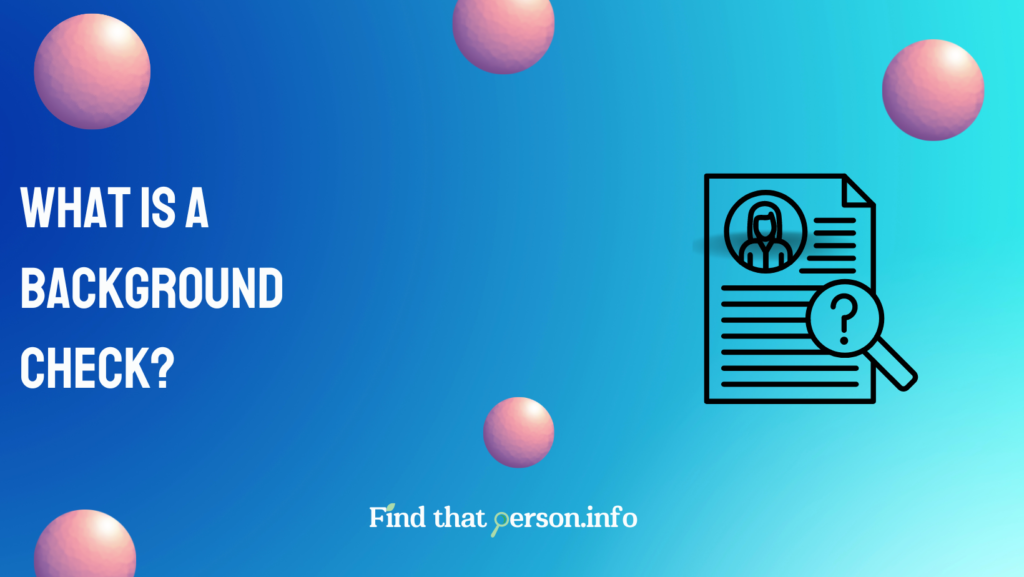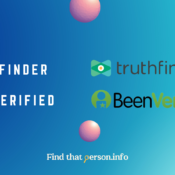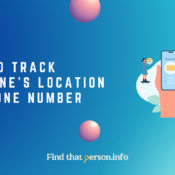
What is a Background Check? – Ultimate Guide
Have you ever wondered what a background check is and why it's become so common in modern society? A background check is a process of investigating an individual's personal, criminal, and professional history.
In this article, we will explore what a background check is and what it typically consists of. We will also delve into the benefits and potential drawbacks of background checks and the ethical considerations surrounding their use.
What is a Background Check?
A background check is a process of reviewing an individual's past criminal records, employment history, education, credit history, and other relevant information including:
- Identity Verification
- Past Addresses
- International Crimes and Felonies
- SSN Verification
- Sex Offender Registry
- Driving Records
- Social Media Data
The purpose of a background check is to verify the accuracy of the information provided by an individual and to assess their suitability for employment, housing, financial transactions, or other purposes.
Background checks can be conducted by employers, landlords, government agencies, and other entities authorized to access such information. The extent of the background check and the information reviewed may vary depending on the purpose of the check and applicable laws and regulations.
What Is a Background Check & What Does It Consist Of?
A background check can consist of various types of information depending on the purpose and scope of the check. The scope of a background check can vary depending on the purpose of the check and the applicable laws and regulations.
In this section, we will discuss what shows up on a background check and the different types of information that can be included in a background check.
Identity Verification
A background check can help verify someone's identity by comparing the information provided by the individual with public records and other sources. Background checks can use various methods to confirm an individual's identity, such as comparing their photo ID to their provided information or conducting a biometric scan.
By conducting a thorough background check, employers can ensure that the individual they are considering for employment is who they claim to be, which can help reduce the risk of fraud, identity theft, and other issues that can arise from incorrect or falsified identity information.
Educational Records
A background check can help verify someone's educational records by conducting an education verification, which involves verifying an individual's academic credentials, such as degrees, diplomas, or certificates, with the educational institution that issued them. The following are some ways a background check can help verify someone's educational records:
- Contact the Educational Institution: The background check provider can contact the educational institution directly to verify an individual's academic credentials, including the type of degree, major, and date of graduation or completion.
- Review Academic Transcripts: The background check provider can review an individual's academic transcripts to verify the courses taken, grades earned, and GPA achieved.
- Confirm Attendance: The background check provider can confirm an individual's attendance and enrollment status with the educational institution to verify that they attended the institution.
- Check with Accreditation Agencies: The background check provider can check with accreditation agencies to confirm that the educational institution is accredited and that the degree or program is legitimate.
Criminal Records
A background check can help verify someone's criminal records by conducting a criminal history check that searches for any criminal records associated with the individual. The following are some ways a background check can help verify someone's criminal record:
- National Criminal Database Search: A national criminal database search can provide a list of criminal records associated with an individual based on their name and other identifying information. This search can include records from multiple states and jurisdictions.
- County Criminal Records Search: A county criminal records search can verify criminal records at the county level, where most criminal cases are prosecuted. This search involves physically checking court records at the county courthouse.
- Federal Criminal Records Search: A federal criminal records search can verify criminal records at the federal level, including cases involving violations of federal law.
Past Addresses
A background check can help verify someone's past address by searching public records and other databases for information related to an individual's residential history.
- Address History Check: An address history check involves compiling a list of an individual's past addresses based on various sources, such as credit reports, utility bills, and other public records.
- Driver's License Check: A driver's license check can help verify an individual's past addresses by reviewing their driving record, which includes their current and previous addresses.
International Crimes and Felonies
A background check can help verify someone's international crimes and felonies by conducting an international background check that searches for criminal records in foreign countries. The following are some ways a background check can help verify someone's international crimes and felonies:
- International Criminal Record Check: An international criminal record check involves searching criminal records in foreign countries, which can be particularly useful for individuals who have lived, worked, or traveled internationally.
- Global Watchlist Check: A global watchlist check involves searching international watchlists and sanctions lists maintained by various government agencies, such as the United Nations, the European Union, and the US Department of Treasury.
- Embassy/Consulate Checks: Embassy or consulate checks involve contacting the relevant embassy or consulate of the individual's home country or countries they have lived in to obtain information on any criminal records or outstanding warrants.
It is important to note that conducting international background checks can be challenging due to differences in laws, regulations, and record-keeping practices across countries, and may require the services of specialized screening companies.
SSN Verification
A background check can help verify someone's Social Security Number (SSN) by conducting an SSN verification check, which compares the SSN provided by the individual with the Social Security Administration's (SSA) database to ensure it matches the individual's name and date of birth. The following are some ways a background check can help verify someone's SSN:
SSN Trace: An SSN trace involves verifying an individual's SSN with various public records, such as credit reports, utility bills, and other official documents, to ensure it matches the individual's name and date of birth.
Sex Offender Registry
A background check can help verify someone's status on the Sex Offender Registry by searching public records and sex offender registries maintained by various government agencies. The following are some ways a background check can help verify someone's status on the Sex Offender Registry:
- National Sex Offender Public Website: The National Sex Offender Public Website (NSOPW) is a free online database maintained by the US Department of Justice that allows users to search for registered sex offenders by name, location, and other criteria.
- State Sex Offender Registries: Each state maintains its sex offender registry, which can be accessed online or through law enforcement agencies.
- County or Local Sex Offender Registries: Some counties and localities may also maintain their sex offender registries that can be accessed through law enforcement agencies or other public records sources.
Verifying an individual's status on the Sex Offender Registry can help ensure that the individual is providing accurate and complete information during the application. It is important to note that not all sex offenders are required to register, and there may be limitations on the types of information that can be disclosed to the public.
Employment History
A background check can help verify someone's employment history by contacting previous employers and checking employment records, such as pay stubs, W-2 forms, and employment contracts. The following are some ways a background check can help verify someone's employment history:
- Employment Verification: An employment verification involves contacting an individual's previous employers to confirm dates of employment, job titles, duties, and salary history.
- Education Verification: An education verification involves contacting an individual's educational institutions to confirm degrees earned, dates of attendance, and academic records.
- Reference Checks: Reference checks involve contacting individuals who can vouch for the individual's work performance, character, and skills.
Credit Report
A background check can help verify someone's credit report by conducting a credit check, which provides information about an individual's credit history, including outstanding debts, credit limits, and payment history. The following are some ways a background check can help verify someone's credit report:
- Credit Report Check: A credit report check involves obtaining a copy of an individual's credit report from one or more of the three major credit reporting agencies - Equifax, Experian, and TransUnion - and reviewing the information to verify the individual's credit history.
- Credit Score Check: A credit score check involves obtaining an individual's credit score, which is a numerical representation of their creditworthiness based on their credit history.
- Financial History Check: A financial history check involves reviewing an individual's financial records, such as bank statements, tax returns, and other financial documents, to verify their financial stability and responsibility.
Driving Records
A background check can help verify someone's driving records by obtaining information from the Department of Motor Vehicles (DMV), which maintains records of an individual's driving history, including accidents, traffic violations, and license suspensions or revocations. The following are some ways a background check can help verify someone's driving records:
- Motor Vehicle Records Check: A motor vehicle records check involves obtaining a copy of an individual's driving records from the DMV and reviewing the information to verify their driving history.
- License Verification: A license verification involves verifying the validity and status of an individual's driver's license, including any restrictions or endorsements.
Social Media Data
A background check can help verify someone's social media accounts by conducting a social media check, which involves searching for an individual's online presence across various social media platforms, such as Facebook, Twitter, Instagram, LinkedIn, and others. The following are some ways a background check can help verify someone's social media accounts:
- Social Media Check: A social media check involves using specialized software or tools to search for an individual's online presence across various social media platforms and review their activity and posts to verify their identity, background, and character.
- Open-source intelligence (OSINT) Search: OSINT searches involve collecting and analyzing publicly available information from various sources, including social media, blogs, forums, and news sites, to verify an individual's identity, reputation, and affiliations.
- Online Reputation Check: An online reputation check involves reviewing an individual's online presence and reputation, including reviews, ratings, and comments from past people.
Different Types of Background Checks
Several different types of background checks can be conducted, depending on the specific purpose and scope of the check. Here are some of the most common types of background checks:
- Criminal Background Check: This type of check looks for criminal records, including arrests, convictions, and other criminal activity. It may also include checks for sex offender registries, terrorist watch lists, and other relevant databases.
- Employment Background Check: Employers may conduct a background check on potential employees to verify employment history, education, professional licenses, and other relevant information. This type of check may also include a criminal background check, drug screening, and credit check.
- Tenant Background Check: Landlords or property managers may conduct a background check on potential tenants to verify rental history, employment, creditworthiness, and criminal history. This type of check may also include a reference check.
- Personal Background Check: Individuals may conduct a background check on themselves for personal reasons, such as verifying their criminal history, employment, and education history, and other personal information.
- Financial Background Check: This type of check is typically conducted by banks, lenders, or financial institutions to evaluate a person's creditworthiness and financial history. It may include a credit check, employment verification, and other financial information.
- Volunteer Background Check: Non-profit organizations and other groups that rely on volunteers may conduct background checks to ensure the safety of their clients and constituents. This type of check may include criminal background checks, reference checks, and other relevant information.
It's important to note that different background check providers may offer different types of checks, and the information included in each type of check can vary. It's important to choose the right type of check for your specific needs and to work with a reputable provider to ensure accurate and up-to-date information.
How Far Does a Background Check Go?
The scope of a background check can vary depending on the people, organization, and purpose of the check. However, there are legal limits to how far back a background check can go in certain areas.
For example, under the Fair Credit Reporting Act (FCRA), which governs the use of consumer reports for employment purposes, a background check cannot include arrest records that are more than seven years old. However, there are exceptions to this rule for certain positions, such as jobs with an annual salary of $75,000 or more, and positions involving law enforcement or national security.
Similarly, some states have laws that place limits on the use of certain types of information in background checks. For example, California prohibits employers from asking about certain criminal convictions that are more than seven years old, except in certain circumstances.
Best Background Check Site
Background check sites are used to provide individuals with information about a person's background. The following are the best background check sites:
BeenVerified

BeenVerified is a reputable and popular background check service that offers a wide range of search options and access to multiple databases, including criminal records, sex offender registries, employment history, education records, and more. They also provide accurate and up-to-date information, as well as easy-to-read reports that summarize the results of each search.
In addition, BeenVerified prioritizes user privacy and security by using secure encryption and other safeguards to protect sensitive information, and they allow users to control who can access their data.
PeopleLooker

PeopleLooker is a reputable background check service that offers access to public records and other information about individuals. They provide a wide range of search options, including criminal records, sex offender registries, contact information, and social media profiles.
It also prioritizes user privacy and security by using secure encryption and other safeguards to protect sensitive information, and they allow users to control who can access their personal data.
However, like any background check service, PeopleLooker has limitations and may not always provide accurate or complete information. Additionally, their pricing options can be confusing and may vary depending on the specific search and report that you need.
TruthFinder

Truthfinder claims to offer a comprehensive background check service that includes criminal records, education and employment history, social media profiles, contact information, and more. However, like any background check service, Truthfinder cannot guarantee 100% accuracy, and its data may not always be up-to-date or complete.
Wrap Up
Background checks are an essential tool for individuals and organizations to make informed decisions and protect their interests. While they may not provide all the answers or guarantee perfect outcomes, they can help minimize risks and provide valuable insights into an individual's background and history.
The conclusion of a background check will depend on the specific circumstances and purpose of the investigation. In some cases, the results may be precise and indicate that an individual has a clean record with no significant issues or concerns.
Regardless of the outcome, it is important to conduct background checks fairly and consistently, using reliable and accurate sources of information. This can help ensure that decisions are made based on objective criteria and avoid discrimination or bias.
Disclaimer: The background check services mentioned above are not FCRA-compliant. Hence, you may not use our service or the information it provides to make decisions about consumer credit, employment, insurance, tenant screening, or any other purpose that would require FCRA compliance.



![Is There a Totally Free Background Check [2024]](https://findthatperson.info/wp-content/uploads/2024/02/Psychology-of-Color-15-175x175.png)




